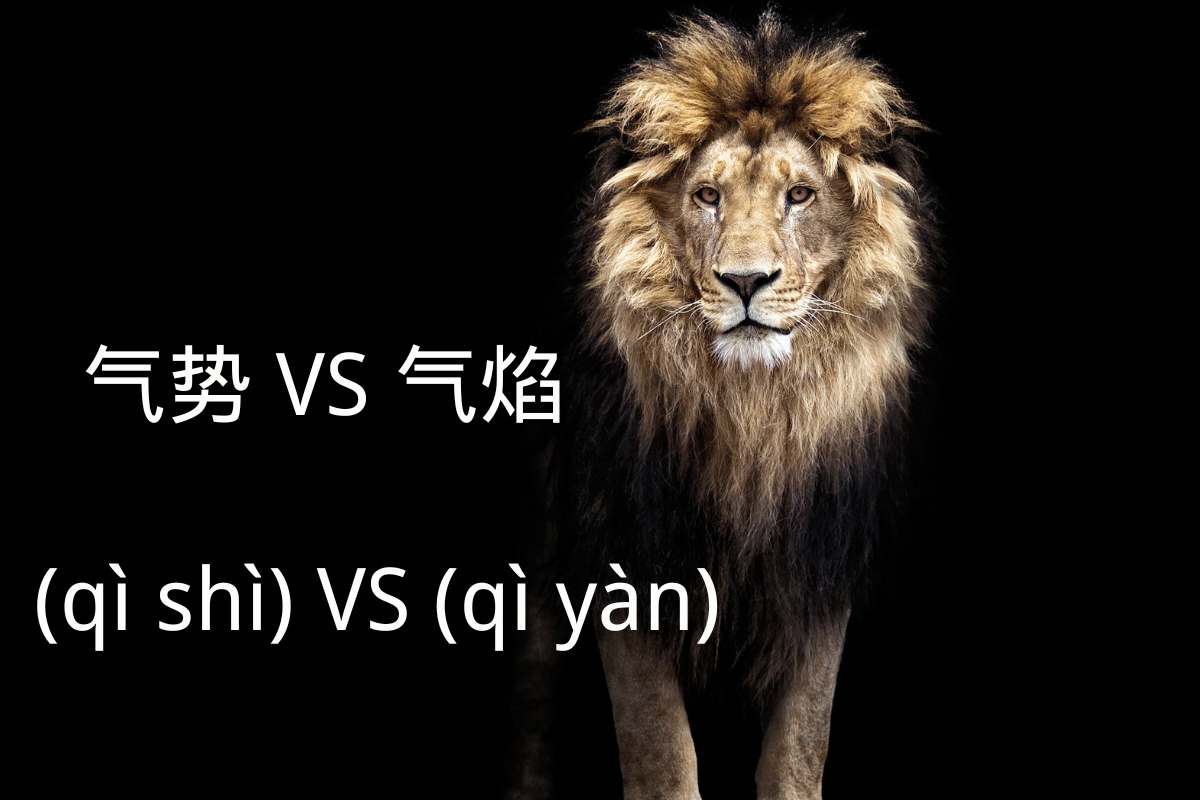HSK Words: 气势 (qì shì) VS 气焰 (qì yàn)
Today, we will learn the HSK Words: 气势 (qì shì) VS 气焰 (qì yàn). Both 气势 (qì shì) and 气焰 (qì yàn) are words used to describe a certain atmosphere or state, but they have different meanings and uses. Both words have strong emotional overtones and can convey moods and attitudes in different situations.

气势(qì shì) refers to the breath or atmosphere emanating from a certain person or thing, and is usually used to describe things in nature, geography, astronomy, etc. In addition, 气势(qì shì) can also be used to describe a person's appearance, posture, demeanor, etc., as well as the ambience and emotions expressed in music, literature, and other forms of art.
Examples:
- Standing in front of the waterfall, I was struck by its grandeur.
站在瀑布前,我被它的气势所震撼。
zhàn zài pù bù qián , wǒ bèi tā de qì shì suǒ zhèn hàn 。 - Their team challenged for the title with determination and poise.
他们的团队以坚定的气势向冠军发起了挑战。
tā men de tuán duì yǐ jiān dìng de qì shì xiàng guàn jūn fā qǐ le tiǎo zhàn 。 - The performance of this symphony is majestic and unforgettable.
这部交响乐的演奏气势磅礴,令人难以忘怀。
zhè bù jiāo xiǎng yuè de yǎn zòu qì shì páng bó , lìng rén nán yǐ wàng huái 。
气焰(qì yàn) refers to the haughty, arrogant, and untouchable attitude or behavior shown by certain people or things, and is usually used in a pejorative context, e.g., the haughty attitude of politicians or powerful people, the luxurious life of the rich and powerful, and so on. 气焰(qì yàn) can also be used to describe the prestige, prestige and authority shown by certain groups or organizations.
Examples:
- He was very arrogant after his recent promotion.
他最近获得晋升后,气焰十分嚣张。
tā zuì jìn huò dé jìn shēng hòu , qì yàn shí fēn xiāo zhāng 。 - The president of this company criticized his competitors publicly in the media with great pomp and circumstance.
这个公司的总裁在媒体上公开批评竞争对手,气焰十分盛大。
zhè gè gōng sī de zǒng cái zài méi tǐ shàng gōng kāi pī píng jìng zhēng duì shǒu , qì yàn shí fēn shèng dà 。 - The winners in this debate were exuberant, while the losers hung their heads in shame.
这场辩论中的胜利者气焰高昂,而失败者则垂头丧气。
zhè chǎng biàn lùn zhōng de shèng lì zhě qì yàn gāo áng , ér shī bài zhě zé chuí tóu sàng qì 。
Quiz:Please consider whether to use 气势(qì shì) and 气焰(qì yàn) in following sentences.
- 他以不可一世的___向世界展示着自己的实力。
tā yǐ bù kě yī shì de ___ xiàng shì jiè zhǎn shì zhe zì jǐ de shí lì 。 - 这个音乐家的表演充满了独特的艺术___ 。
zhè gè yīn yuè jiā de biǎo yǎn chōng mǎn le dú tè de yì shù ___ 。 - 老板的发言十分有___,明显是在压制对方。
lǎo bǎn de fā yán shí fēn yǒu ___, míng xiǎn shì zài yā zhì duì fāng 。
Answer:
- 气焰(qì yàn)
- 气势(qì shì)
- 气势(qì shì)